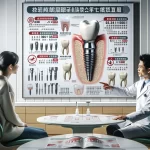Are you confused about Medicare’s dental coverage? You’re not alone. While Medicare provides essential health benefits, its dental coverage is often misunderstood. In fact, only 3-4% of practicing dentists are enrolled as Medicare providers, leaving many seniors wondering about their options.
Don’t worry – we’ve got you covered. This article will demystify Medicare dental benefits, revealing what’s included and what’s not. You’ll learn:
- Which dental services Medicare actually covers
- Recent changes to Medicare dental policies for 2025
- How to access dental care even with limited coverage
Whether you’re nearing 65 or already enrolled, understanding your dental benefits is crucial for maintaining good oral health without breaking the bank. Ready to sink your teeth into the details? Let’s explore what Medicare really offers when it comes to your smile.
Medicare’s Coverage of Dental Services
Limited Coverage Under Original Medicare
Medicare primarily covers dental services that are essential to another medical treatment. Unfortunately, most routine dental care—such as cleanings, fillings, and dentures—is not included under Original Medicare (Parts A and B). However, there are specific scenarios where certain dental services may be covered.
Dental Services Covered by Medicare
- Inpatient Hospital Dental Services
- If a dental procedure is performed during an inpatient hospital stay due to a medical condition or the complexity of the procedure, Medicare Part A may cover the hospital costs. Patients should be aware that they might still face coinsurance and deductible payments.
- Dental Services Integral to Other Medical Treatments
- Medicare may cover dental services that are directly linked to the success of other covered medical procedures. These include:
- Oral examinations and treatments before organ transplants or cardiac surgeries.
- Dental care prior to cancer treatments, such as chemotherapy or radiation therapy.
- Post-treatment care for dental complications arising from cancer therapies.
- Dental ridge reconstruction when necessary for jaw preparation after tumor removal.
- Tooth extractions required before radiation treatment for neoplastic diseases.
- Dental splints or wiring related to treating a covered medical condition.
In these instances, ancillary services like anesthesia and X-rays may also be covered under Medicare.
Dental Services Not Covered by Medicare
It’s essential to understand what Medicare does not cover regarding dental care. The following routine services are excluded:
- Cleanings
- Fillings
- Tooth extractions (unless part of a covered medical treatment)
- Dentures and dental implants
- Most oral surgeries
Additionally, procedures related to non-covered treatments—such as preparing the mouth for dentures—are also not included.
Alternatives for Dental Coverage
For those seeking routine dental care not covered by Medicare, several alternatives exist:
- Medicare Advantage Plans: Many private insurers offer Medicare Advantage (Part C) plans that include additional dental benefits. These plans often cover preventive services like cleanings and exams and may also extend coverage to more extensive procedures.
- Private Dental Insurance: Purchasing a separate dental insurance plan can help cover routine care and procedures not included in Medicare.
- Medicaid: Some states provide dental coverage for individuals eligible for both Medicare and Medicaid. It’s advisable to check with your state’s Medicaid agency for details.
- Low-Cost Dental Clinics: Community health centers and dental schools frequently offer services at reduced rates for those without insurance.
Conclusion
While understanding the limitations of Medicare’s dental coverage is crucial, it’s equally important to explore alternative options available for comprehensive oral health care. By considering Medicare Advantage plans, private insurance, or community resources, beneficiaries can ensure they have access to necessary routine and specialized dental services. Staying informed about your options empowers you to make educated decisions regarding your oral health and overall well-being.







